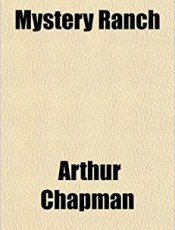now that was the key in which sanderson dealt with his boys and in which he gave his message to the world. and that is also the key in which they dealt with him. i want to clear out of the reader's mind any idea that this great teacher of men was a solemn and superior person, clear, exact, and exalted, and that his boys had any vague sentimental worship for him. they laughed at him, loved him, understood him, assimilated his ideas, and worked with him. he was much more like a sweating, panting, burly leader pushing a way for himself and others through a thorny thicket. and when i sat in his study and read over the notes of his sermons and scripture lessons i got the same impression of a sturdy fighter thrusting through a tangle.
[pg 83]
altogether there were several hundred of these sermon-memoranda. he would take a quire of manuscript paper and write down his notes, not headings merely but sentences, writing very fast, missing out halves of words, leaving phrases incomplete. the result would be a little book with perhaps a title and a date scribbled on the back page. the dozen specimen sermons in the official life were mostly taken from these rough drafts. there was also a quantity of printed sermons dating from his earliest days at oundle. so that it was possible to trace his development from the days when every heretical utterance was jealously noted, to the days of complete freedom of thought and expression.
he came into the interlaced briars and brakes of modern religious thought, a trained theological student, but already a very broad one, far from the trite materialistic superstitions of the narrowly orthodox. 'of what is termed "definite religious teaching" his boys received little,' says one of his clerical assistants. 'the head fought shy of anything which he felt might cramp a boy's tendency to think for himself and develop his own views.'
[pg 84]
this is far from the old days of salvation by belief.
he took christ as the central figure in his teaching. in his early days he had prepared a parallel arrangement of the gospels, and this developed into his synopsis of the life of christ. he seems to have clung stoutly to the authenticity of the recorded sayings of christ, but he held himself free to doubt whether we have as yet 'got to the bottom of many sayings of the master.' and, says the same witness, at once rather vaguely and rather illuminatingly: 'he brushed aside impatiently doubts as to the feasibility of this miracle or that. to any who seemed to be worrying about the actual turning of water into wine at cana he would urge that they were missing the whole point; cold, lifeless water was turned into warm, life-giving wine—and this was the work of the master and his new teaching. could they doubt that? he seemed to feel acutely that the passing of the centuries is liable to bring a distortion as well as an enrichment of the christian revelation, and for that reason he was always trying to meditate himself, and to get others to meditate, on the true characteristics of the master in the earliest[pg 85] portraits of him handed down to us in the gospels.'
like all religious teachers he emphasised some aspects of the general doctrine in preference to others, but his accent was never on the sacramental or ceremonial side. the root ideas of orthodox christianity, the ideas of sin and an atonement, never very prominent in his teaching, faded more and more from his discourses as the years went on. he never seems to have had much sense of sin, and he laid an increasing stress on action, on courage and experiment. one saying he repeated endlessly, 'give, and it shall be given unto you; good measure, pressed down, shaken together, running over, shall men give into your bosom.' still more frequently he quoted, 'i came that ye might have life, and that ye might have it more abundantly.' in his later days that had become a new motto for oundle school; it ousted 'god grant grace' from the boys' thoughts in much the same way that faraday for all spiritual purposes ousted st. anthony as the patron saint of the school. and in the later sermons one would find side by side with gospel sayings, exhortations from quite another quarter. the boys were[pg 86] told to 'live dangerously.' the christ of later oundle became indeed a very nietzschean christ.
